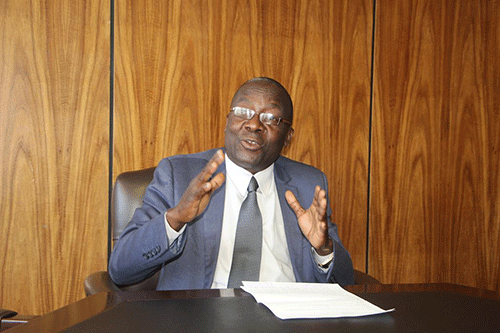Josephina Mwashindange
Urban and rural development minister Erastus Uutoni has called on regional councils to prioritise services to the communities because they are supposed to serve people where they are.
Uutoni made these remarks at the opening of a two-day consultative meeting for the 14 regional councils and delegated line ministries, to reflect on the progress made, challenges encountered and mostly share ideas and strategies on how to forge ahead with the decentralisation process, held at the Namibia Institute of Public Administration and Management (NIPAM) centre in Windhoek from 23 to 24 March.
This forum, Uutoni said, must serve as a platform “for us to review progress and give an account where we are lagging behind”. He said decentralisation is an important policy in Namibia aimed at empowering sub national governments by transferring key service functions, decision-making powers, along with necessary resources from central government to sub national levels, with the purpose to render effective services.
During the meeting, the regional councils shared their presentations on progress, challenges and interventions together with the delegated functions whereby presenters emphasised strongly the delegated functions to be decentralised with adequate resources.
“The relationship between the central government and the sub national governments must be characterised by the spirit of cooperation and common purpose rather than competition, because the central and sub national government have only one customer, and that is the Namibian citizen,” said Uutoni.
He further called for continuous mutual cooperation and communication between regional councils and decentralised line ministries in order to ensure a responsive government system.
He encouraged all the regional councils to prioritise services to the communities because regional and local authorities are purposefully stationed to serve as channels for development and public service delivery, this is due to their unique knowledge of local needs and proximity to the local communities.
Uutoni highlighted that throughout the journey of decentralisation, challenges might be encountered, however, that should not be construed as impossibility, but rather lessons and opportunities upon which stakeholders can build to refine the decentralisation approach and systems.
Some of the key decentralised functions are, rural water supply and sanitation, primary and secondary education, communal land management, maintenance of government infrastructure, early childhood development and community development as well as audiovisual and print media.
Meanwhile, ministries such as health, agriculture and labour have thus far been gazetted to be decentralised.
In her closing remarks to the meeting, the deputy minister of urban and rural development, Nathalia /Goagoses, advised the meeting that despite inadequate resources, stakeholders should always ensure and improve communication, transparency and accountability in the utilisation of resources at their disposal.
Finally, stakeholders were urged to act on the resolutions and recommendations transpired from the meeting that will enable the ministry to better the operations and processes as it continues its support and commitment.
Caption: (Decentralisation) Service please… Minister of Urban and Rural Development Erastus Uutoni.
Photo: File


